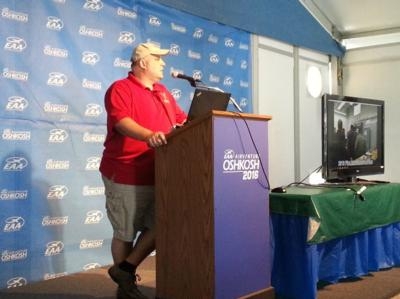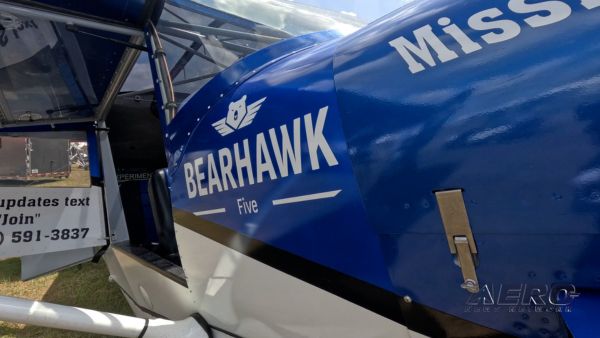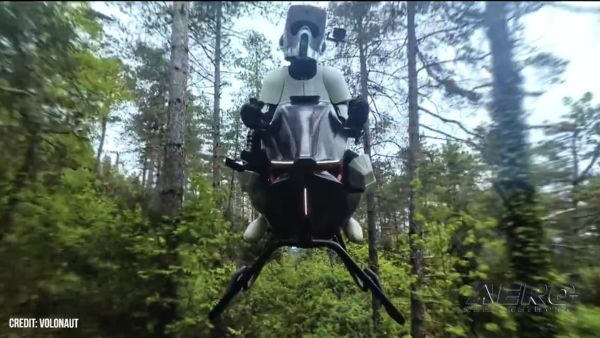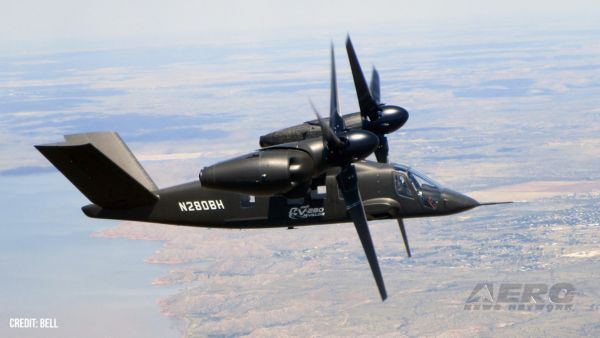Thu, Jul 28, 2016
Presents Update On Milestones Reached At AirVenture
By Anthony Liberatore
Since their first news conference at AirVenture last year, Engineered Propulsion Systems (EPS) has reached several significant milestones on their path towards certification of their Diesel engine.

EPS Co-founder, CEO, and President Michael Fuchs said in a news conference Tuesday that the company has made progress towards both Type (TC) and Production Certification (PC) as well as serial production. Fuchs noted the target date for obtaining a Type Certificate is late 2017, with the PC shortly their after. The EPS Engine is a “Flat Vee” (15º) V8 Heavy Fuel Engine in the 300 to 420 hp class, with fuel consumption specifics that are 30% lower than their Piston competitors and 50% lower than their Turboprop competitors.
Among the milestones noted by Fuchs for 2016 are that the conformity process has proceeded to the point that all engine parts and systems are confirmed. He also noted they have completed their second Propeller Survey with Hartzell Propeller at their Ohio facility. Fuchs also noted that EPS Diesel with be certified for both Composite and Metal Propellers. Early on in EPS's development cycle, EPS met with potential customers from diverse backgrounds such as Missionary Aircraft and Seaplanes to understand what type of propellers were needed for their applications.
Fuchs said the company has ramped up personnel to assist in their efforts towards obtaining their TC and PC, including direct hires, sub-contractors, and those affiliated with their Diesel Injection / ECU system sub-supplier Bosch. At this time, 100 people are working towards both certifications, with the majority of the employees working under the Bosch umbrella.
Fuchs discussed a number of interesting facts about the engine. One is that while it is a 15º V8, the footprint of the engine is that of a traditional flat six cylinder aircraft engine. Another is while it is Liquid Cooled Diesel, there are not aviation fluids available for both systems. However, the engine will utilize the conventional 50/50 coolant and water mix for the liquid cooling system and a heavy duty Diesel truck oil for its lubrication. Fuchs was asked about testing the engine's ECU against potential lightning strikes, and he said the company is working towards meeting DO-160G, FAR 23, and FAR 27 requirements for the ECU.
(Staff image)
More News
Fuel Remaining A phrase used by either pilots or controllers when relating to the fuel remaining on board until actual fuel exhaustion. When transmitting such information in respon>[...]
Aero Linx: Piper Aviation Museum Preserving the history and legacy of the Piper Aircraft Corporation and its founding family. In the past three years, the Piper Aviation Museum has>[...]
Klyde Has No Patience... FMI: www.klydemorris.com>[...]
Also: Tentative AirVenture Airshow Lineup, Supersonic Flight Regs, Private Pilot Oral Exam Guide, Boeing Deal The sport aircraft business can be a tough one... especially when Moth>[...]
Also: FedEx Pilots, Army Restructuring, Alaska ANG, Incentive for ATC Hiring EAA Chapter 534 in Leesburg, Florida announced that the 2025 Ray Aviation Scholarship winner is Abdiel >[...]
 ANN's Daily Aero-Term (05.19.25): Fuel Remaining
ANN's Daily Aero-Term (05.19.25): Fuel Remaining ANN's Daily Aero-Linx (05.19.25)
ANN's Daily Aero-Linx (05.19.25) Klyde Morris (05.16.25)
Klyde Morris (05.16.25) Airborne 05.19.25: Kolb v Tornados, Philippine Mars, Blackhawk Antler Theft
Airborne 05.19.25: Kolb v Tornados, Philippine Mars, Blackhawk Antler Theft Airborne-Flight Training 05.15.25: Ray Scholarship, Alto NG, Fighter Training
Airborne-Flight Training 05.15.25: Ray Scholarship, Alto NG, Fighter Training



